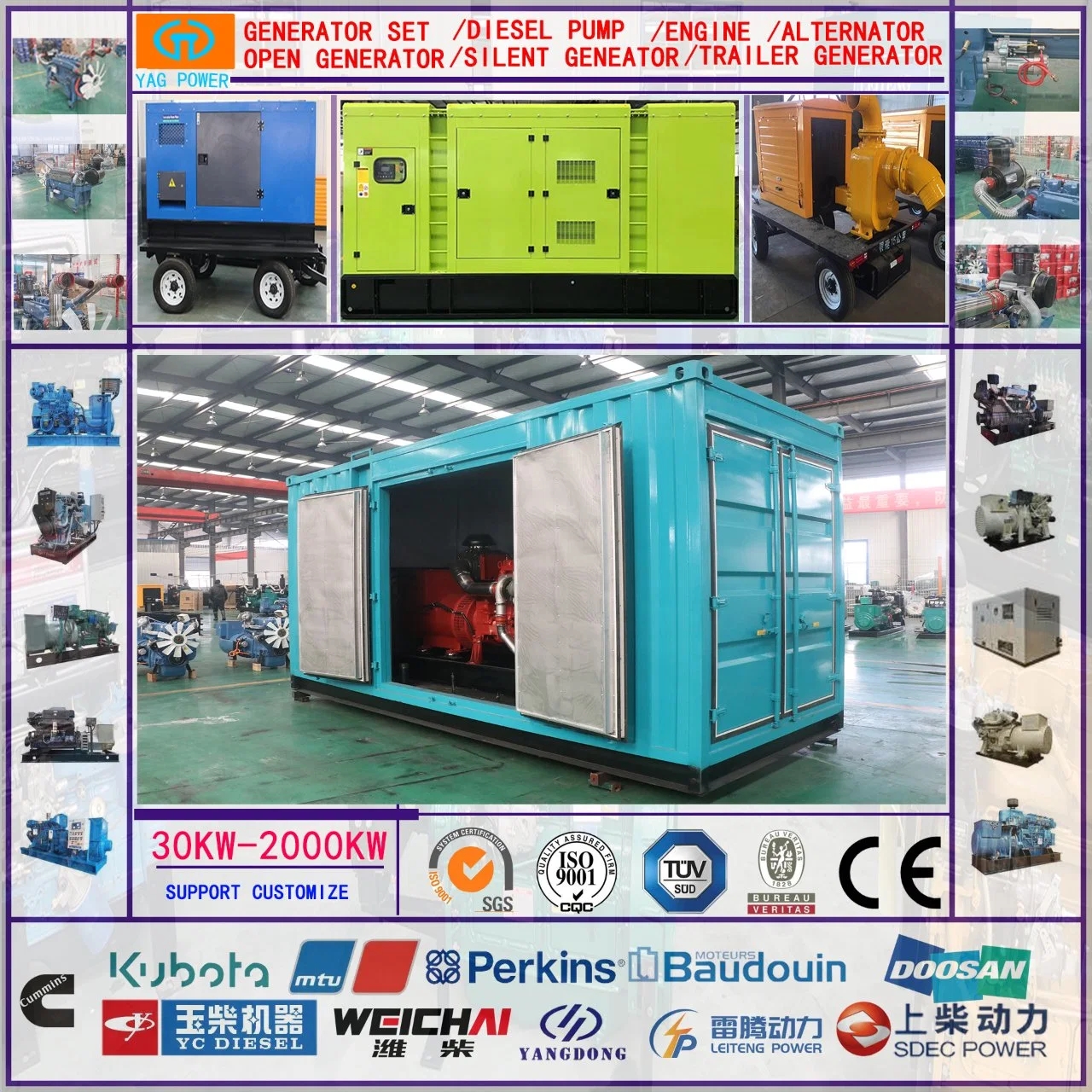Introduction
In the vast landscape of industrial applications, the need for reliable and efficient power sources cannot be overstated. Diesel generators have been a staple in the industrial sector for decades, providing a dependable source of energy for a wide range of applications. From manufacturing plants to construction sites, diesel generators play a crucial role in ensuring uninterrupted power supply in critical operations.
This article aims to explore the significance of diesel generators in industrial applications, delving into their key features, benefits, and considerations for optimal performance. We will discuss the working principles of diesel generators, their advantages over other power sources, and best practices for maintaining and operating these machines in industrial settings.
Understanding Diesel Generators
Diesel generators are versatile power generation units that utilize a diesel engine to convert diesel fuel into electrical energy. The basic components of a diesel generator include the engine, alternator, fuel system, cooling system, and control panel. 600kw generator work together to produce electricity through a series of mechanical and electrical processes.
The diesel engine is the heart of the generator, responsible for converting the chemical energy in diesel fuel into mechanical energy through combustion. This mechanical energy is then converted into electrical energy by the alternator, which consists of a rotor and stator that generate an alternating current (AC) output. The fuel system supplies diesel fuel to the engine, while the cooling system helps regulate engine temperature to prevent overheating.
One of the key advantages of diesel generators is their ability to provide reliable and efficient power output over extended periods. Diesel engines are known for their durability, robustness, and fuel efficiency, making them ideal for continuous operation in industrial environments. Additionally, diesel generators can be easily integrated with existing electrical systems and automated to start automatically in case of power outages.
Benefits of Diesel Generators in Industrial Applications
1. Reliability: Diesel generators are renowned for their reliability and durability, making them a preferred choice for industrial applications where uninterrupted power supply is critical. The robust design of diesel engines ensures consistent performance even under heavy loads and harsh operating conditions.
2. Fuel Efficiency: Diesel engines are more fuel-efficient compared to gasoline engines, making diesel generators a cost-effective option for industrial users. The higher energy density of diesel fuel means that diesel generators can produce more power using less fuel, resulting in lower operating costs over the long term.
3. Longevity: Diesel generators have a longer lifespan compared to other types of generators, thanks to the rugged design of diesel engines and their ability to withstand heavy usage. With proper maintenance and care, diesel generators can operate for thousands of hours, providing reliable power for industrial operations.
4. Power Output: Diesel generators are capable of producing high power output, making them suitable for powering heavy machinery, equipment, and electrical systems in industrial settings. The robust nature of diesel engines allows them to handle varying load demands without compromising performance.
5. Quick Start-Up: Diesel generators can start up quickly and reach full power output within minutes, ensuring minimal downtime in case of power outages or emergencies. This rapid response time is crucial for industrial applications where even a short interruption in power supply can lead to significant losses.
Considerations for Industrial Diesel Generators
While diesel generators offer numerous benefits for industrial applications, there are several key considerations to keep in mind when selecting, installing, and operating these machines:
1. Power Requirements: It is essential to accurately determine the power requirements of your industrial operations to select a diesel generator with the appropriate capacity. Undersized generators may lead to power shortages, while oversized generators can result in inefficient fuel consumption and higher operating costs.
2. Environmental Regulations: Diesel generators emit exhaust gases and noise during operation, which may be subject to environmental regulations and standards. It is crucial to comply with local laws and regulations regarding emissions and noise levels to minimize the environmental impact of diesel generator use.

3. Maintenance and Service: Regular maintenance and servicing are essential for ensuring the optimal performance and longevity of diesel generators. Scheduled inspections, oil changes, filter replacements, and testing of critical components should be carried out to prevent breakdowns and downtime.
4. Fuel Storage and Handling: Diesel fuel storage and handling are critical aspects of operating diesel generators safely and efficiently. Proper fuel storage tanks, fuel quality monitoring, and spill containment measures should be in place to prevent fuel contamination and ensure a reliable fuel supply.
5. Safety Precautions: Industrial diesel generators pose certain safety risks due to the presence of high voltage electrical components, moving parts, and combustible fuels. Adequate safety precautions, such as proper grounding, ventilation, fire protection, and operator training, should be implemented to prevent accidents and injuries.
Conclusion
Diesel generators play a vital role in powering industrial applications, providing a reliable and efficient source of electricity for a wide range of operations. Their durability, fuel efficiency, high power output, and quick start-up make them indispensable in industries such as manufacturing, construction, mining, and oil and gas.
By understanding the working principles of diesel generators, leveraging their benefits, and following best practices for maintenance and operation, industrial users can maximize the performance and reliability of these essential power generation units. With the right approach to selecting, installing, and maintaining diesel generators, industrial applications can benefit from uninterrupted power supply and enhanced operational efficiency.
In conclusion, diesel generators are poised to continue shaping the future of industrial power generation, driving innovation and productivity across various sectors. As industrial operations evolve and expand, the demand for reliable and efficient power solutions will only grow, solidifying the position of diesel generators as a cornerstone of modern industrial infrastructure.
